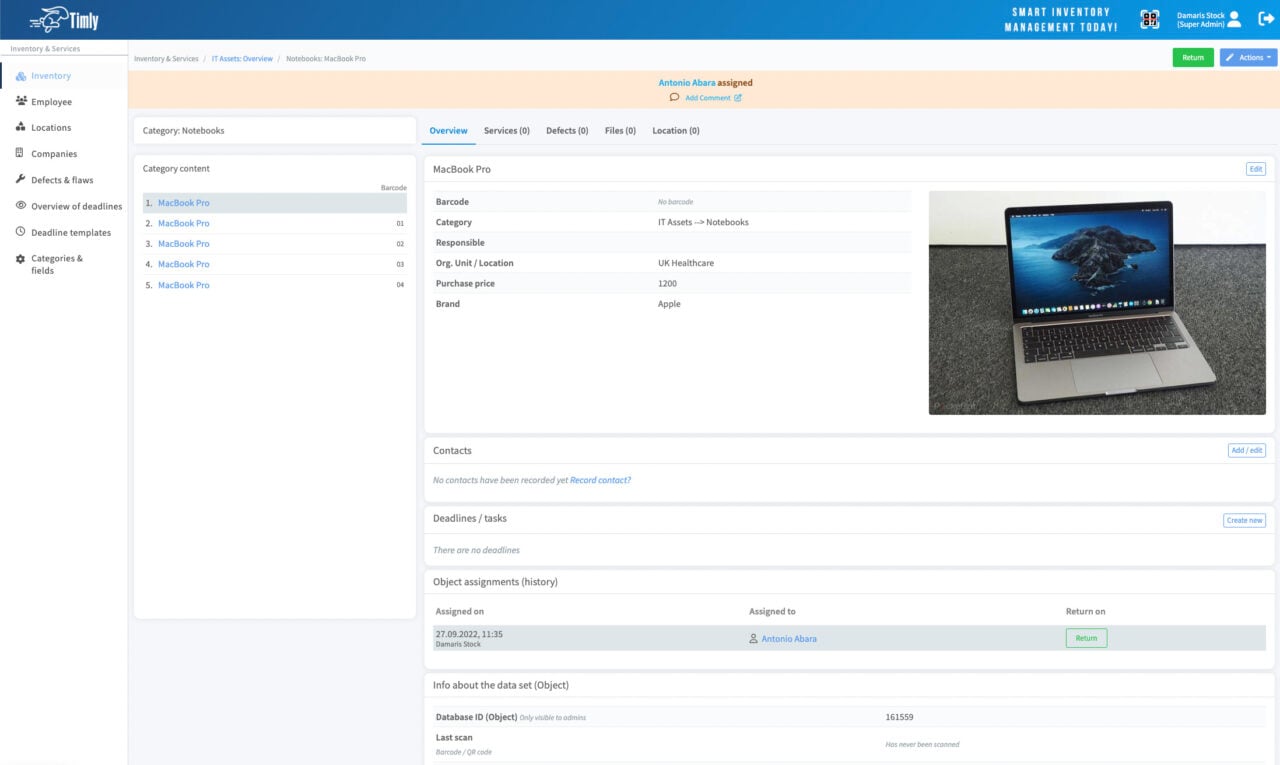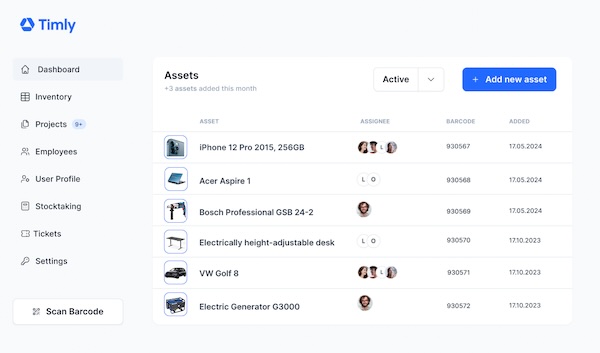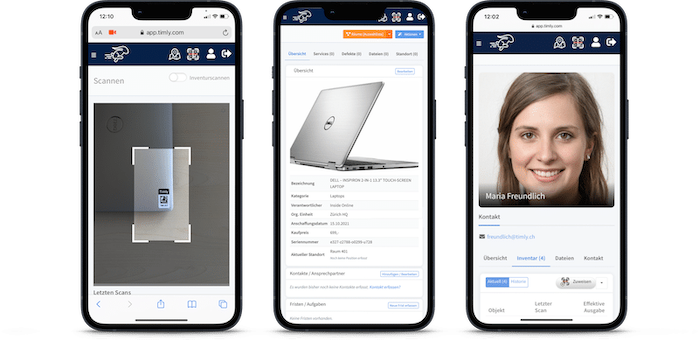
Perpetual Inventory: What Is It?
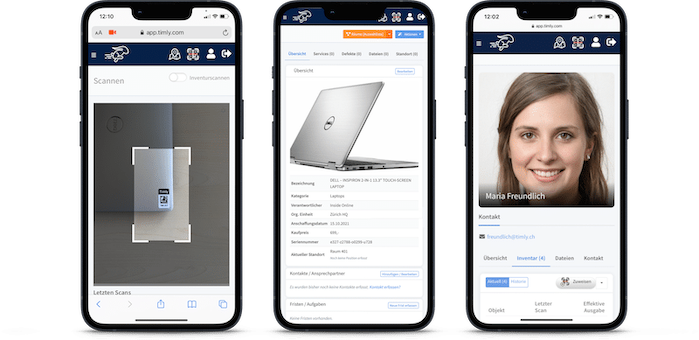

What Is Perpetual Inventory?
The stocktaking is due once a year. With the inventory or stocktaking, the type, quantity and value of all assets and debts of a company are recorded without gaps. In most cases, the condition of the items is also documented.
Real time inventory tracking and managing of stock levels is cost-intensive for every company, time-consuming and costs a lot of nerves. The permanent inventory is a special type of stocktaking. The permanent inventory is a special type of inventory in the company and allows the company to spread the inventory over several days in the year.
According to § 241 (2) HGB (inventory), the inventory must be taken physically and in book form. If the inventory is taken by means of the permanent inventory, the inventory is continued from the time with the determined quantity.
Perpetual inventory methods are mainly used by companies with frequently changing stocks, including cash stocks as well as stocks of goods.
In a current business year, turnover results in inventory updates from additions, such as cash receipts and goods receipts, and disposals, such as cash payments and goods issues. The actual inventory changes as a result, but should then match the book value at all times.
What are the requirements for a perpetual inventory?
If a company wants to introduce the variant of perpetual inventory, the so-called stock book is a must. All items with their stocks and stock movements are documented in the stock book and only if all additions and disposals are recorded there may the simplified inventory model of the perpetual inventory be used.
Carrying Out the Perpetual Inventory
In stocktaking, a physical inventory must be taken once a year for each item kept and the actual stock of the item must be counted. This actual state and the associated stock deviations are then documented in the stock ledger, including the time of stock determination.
With the continuous inventory, in contrast to the annual inventory, it is not necessary that all stocks are actually taken on the same day. The stocktaking can take place on different days in the case of the permanent inventory and the quantity taken can be distributed over different dates.
However, the inventory must not be limited to random samples or representative cross-sections, but must always include the entire stock.
Central inventory management
Individual set up
Allocate & schedule inventory
Integrated barcode scanner
Maintenance & service management
Tracking of defects
User & role administration
Record GPS locations
An example of perpetual inventory
A winter sports shop has enough time during the summer months to carry out an exact inventory for every single item. Receipts and issues are all documented with receipts on the balance sheet date of 31.12. and recorded in the merchandise management system. The updates are now included in the balance sheet at the end of the business year.
When a permanent inventory is inadmissible
If the inventory consists of particularly valuable assets, the simplified inventory procedure of the perpetual inventory may not be carried out. This also applies to items for which uncontrollable losses (e.g. due to shrinkage, spoilage or evaporation) can occur or which are easily breakable.
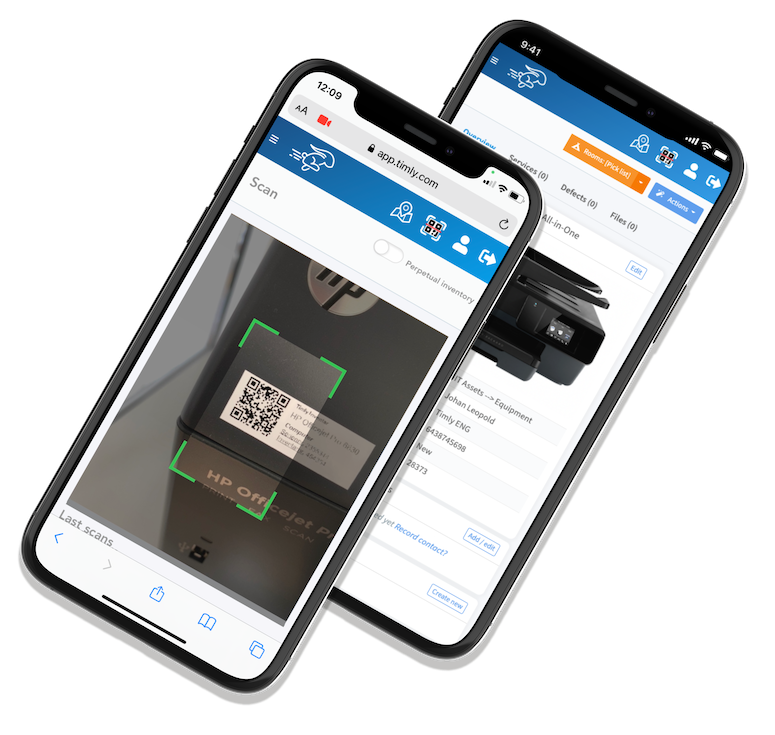
Advantages of this Procedure
Freely selectable time
Probably the biggest advantage of the perpetual inventory is that the time of the physical inventory count is freely selectable and the inventory actions can thus be spread over the whole year.
No time pressure
Due to the freely selectable time of the inventory and the distribution of the inventory actions over the year, there is no time pressure and qualified personnel can be deployed, whereby ultimately better results can be expected and errors are reduced.
Less workload
The workload of stocktaking can be minimised by carrying it out when inventory levels are low. It is self-explanatory that you effectively save costs by reducing labour.
No downtime in the company
The fact that the inventory activities can be spread over the whole year and take place in individual stages means that the business does not come to a standstill and the processes in the company are not affected as much.
(No credit card required)
Disadvantages of this Procedure
Increased accounting requirements
High demands are placed on accounting records, which can, however, be minimised by merchandise management systems and other technical solutions such as Timly.
Restrictions on the product scope
The application possibilities of the perpetual inventory are slightly limited and unfortunately cannot be applied to all product groups.
You can find a thorough description of the disadvantages of perpetual inventory here.
Using Timly to Manage Assets All Year Round
As already mentioned, perpetual inventory is also associated with high demands in terms of accounting. Creating inventory lists is a big deal anyway, and in the conventional way, elaborate Excel tables have to be created. Optimally, this is done according to the dual control principle. Elaborate and time-consuming.
However, digitalisation plays into our cards here and makes the creation of inventory lists easier than ever before. With Timly’s inventory software, inventory can be managed easily and efficiently, and all online. The inventory management is also fully usable via smartphone and tablet.
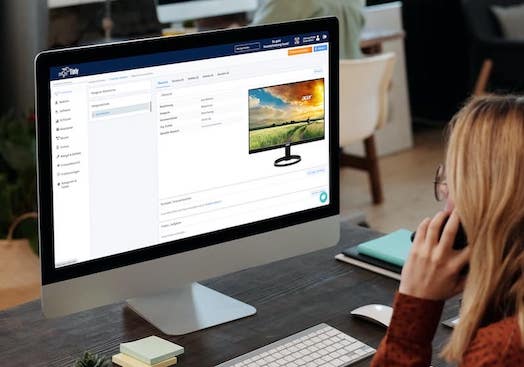
With efficient inventory software, perpetual inventory is easy for your employees
Freely definable categories and input fields can be created and Timly has extensive detail pages with documents, services, locations, usage data and assignment history. The data can be easily stored in the cloud, which is backed up daily based on state-of-the-art IT systems and, of course, GDPR-compliant.
Furthermore, interfaces to common systems are available, which makes it easy to integrate Timly into existing management systems and benefit from synergy effects. Get to know the inventory management software that simplifies your permanent inventory:
Overview of the inventory at any time and from anywhere
Compatibility with mobile devices such as smartphones or tablets
Integrated barcode / QR code scanner
Simple, mass inventory possible
Assigning the inventory to individual persons or places
Store files, documents or even contacts
GPS location tracking incl. location history
How Inventory Management Works With Timly
Inventory is simple and efficient with Timly. For example, in the construction industry, all machines and equipment can be provided with a QR code label, scanned and thus easily recorded in the management system. If an inventory list already exists, it can easily be imported into Timly and continued.
The smartphone or tablet can be used in “inventory mode” like a kind of scanner. In this way, every employee can easily use his or her mobile phone for the inventory and record the IT equipment, tables, machines, etc. Inventory that is frequently present in the company, such as chairs and tables, can be easily inventoried en masse with Timly’s scanner. A physical inventory is thus carried out in no time at all.
In the Timly appointment overview, inventory, inspection and maintenance dates can be stored and any damage to the machines or equipment can be recorded with a picture. In this way, several inventory dates can be set for a permanent inventory and are never forgotten. The inventory list is created cleverly and efficiently without much effort.
Similar Blog Posts:
Book an online demo - free and without obligation - or create your free trial account directly.


